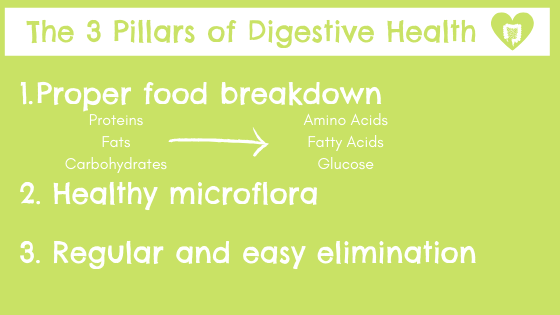8 easy ways to fix that crappy digestion
Feb 22, 2021
The 3 Pillars of Digestive Health
While the nature of digestion is inherently complex, consisting of thousands of micro-reactions that are heavily influenced by our environment, our diet, our sleep, and our stress levels, there are a few simple questions we can ask to assess how well our system is functioning and where we may need more support.
The first question we can ask is: am I properly breaking down my food?
Perhaps the whole digestive process can be distilled into the goal of reducing the food we eat into its simple chemical components so that we can repurpose them in the ways we need.
This is crucial for nutrient absorption, for maintaining the integrity of our internal structures, for balancing our microbiome, and for minimizing immune reactivity.
The second question is: am I maintaining a beneficial population of microflora?
This means stoking the good guys and keeping the bad guys in check.
Overgrowths and imbalances are some of the biggest drivers of inflammation in the body.
The deep extent to which these imbalances may drive our ailments is only just coming to be understood.
Each new paper that comes out examining the relationship between our bugs and our health and happiness seems to galvanize the role of humans as mere hosts to the millions of tiny creatures that occupy us.
The third question is: am I eliminating easily and regularly?
Eliminating waste via defectation is one of the main ways we shuttle toxins out of the body.
We don’t want to be running to the bathroom every 5 minutes, and we don’t want to go more than a day without a proper bowel movement.
We also don’t want eliminating to be strained or painful.
The ease and timing of your poop can actually tell us quite a lot about your overall health!

8 easy ways to improve your digestion
1) Rest and Digest.
Turning off the screens and sitting at a table might sound old-fashioned, but your gut will thank you for it.
If you’re ever feeling especially keyed up before you sit down for a meal, try closing your eyes and taking 3 deep breaths before you dig in.
Expressing gratitude for the food you eat is a wonderful way to draw your attention to the present and promote your own awareness about what and how you consume.
It’s also crucial for putting the body in a parasympathetic nervous system response, which allows your precious energy and resources to flow to the gut rather than to stress response.
2) Chew your food.
At the risk of sounding like a scolding parent, don’t forget to chew!
By taking time to thoroughly chew what we’re eating, and to savor the tastes we get from our food, we can actually work to increase the enjoyment we derive from our meal.
Eating is one of the most pleasurable experiences we get on the earth as human beings, so why not spend an extra moment on our daily food experiences?
Without this important step, we place a heavier burden on our digestive secretions to sufficiently break down food for absorption, which even those with normal secretion levels may struggle to overcome.
3) More stomach acid not less.
By avoiding proton pump inhibitors like Prilosec, too many starchy and sugary foods that suppress secretions, eating a nutrient-dense diet, and reducing our stress load we can support our supply of stomach acid and keep it freely flowing.
We can even eat certain foods to increase acid, such as bitter herbs, vinegar-based foods, and spices like ginger.
Beets also provide a wonderful and safe source of natural Betaine, a key component of Betaine HCl (stomach acid).
4) Supplement your finite supply of enzymes.
By limiting the amount of dead or processed food we eat and increasing the enzyme-rich food, we can augment our supply of deployable enzymes and keep inflammation at bay.
Besides our digestive processes, our immune system relies on enzyme activity to inflame and anti-inflame tissue – so having an ample amount is crucial for supporting immune balance.
Some enzyme rich foods include raw fruits and vegetables (pineapple and papaya especially), fermented foods like sauerkraut and kimchi, raw meats like sushi, tartare, and carpaccio, and raw unfiltered honey.
Proteolytic or protein-loving enzymes are especially helpful for inflammation issues when taken on an empty stomach.
Virtually everyone with digestive symptoms could benefit from supplementing with these.
5) Move and thin your stagnant bile.
Eating plenty of quality fats such as avocados, coconuts, olives, grass-fed butter, and pastured lard, tallow, and animal fat is a great way to provide the building blocks for healthy bile.
Ensuring that it flows freely and abundantly will also depend on your liver status, your movement, and your diet.
Supplementation with Phosphatidyl choline, amino acids like taurine, sea salt, and vitamin C can be therapeutic for stubborn cases.
If you suspect you’re short on bile, maybe because you’ve had your gallbladder out, adding in a targeted bile support like TUDCA can transform your digestion over night.
6) Seal up your leaky gut lining.
The best way to avoid a leaky gut is to ensure all of the Northward steps of digestion are humming like a sweet machine, and identifying and removing any food sensitivities in the mean time such as gluten, dairy, FODMAPS, etc.
Drinking plenty of glutamine and collagen rich broths that provide important nutrients for strengthening the gut lining, and fermented foods and probiotic supplements can help to root out any infections from taking hold.
7) Maintain a healthy microbial balance.
Eating a variety of plant fibers and prebiotics such as flavonols and polyphenols is the best way to promote a diverse and abundant microflora population.
This might change if you are suffering from an overgrowth, in which case you may benefit from temporarily limiting your fibers while you get the invasion under control.
Ingesting fermented foods and probiotic supplements will also help to reinoculate the gut with what it needs.
Spending time in the dirt, perhaps gardening, camping, or playing sports, can also help you get a healthy dose of immuno-modulating organisms.
8) Keep your colon moving.
Chronic dehydration can cause a shortage of digestive secretions and lubrications, which can result in a sluggish bowel.
Drink plenty of clean water to keep things moving smoothly.
Once again, the enzymes and probiotics found in probiotic foods can prove incredibly therapeutic.
Focusing on healthy fats while avoiding congesting processed foods and glutinous foods can be helpful.
If worse comes to worse, taking a mix of demulcent herbs that help to coat and soothe the gut lining can help to move things along in the short term - things like aloe, slippery elm, and marshmallow root.







